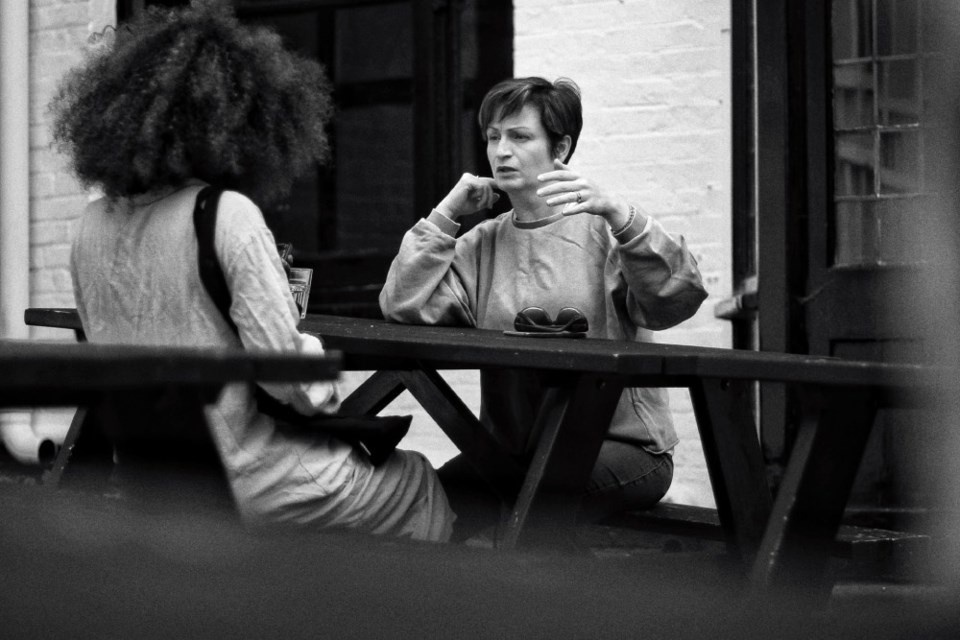It was very painful to see nazi flags flown in Ottawa last month. Recent reports of racist and anti-semitic remarks in Victoria during protests create unsafe and uneasy feelings within our communities. Though not representative of the Truck Convoy as a whole, these events remind us of the increase in fear-based rhetoric in Canada.
What can we do?
As an Ashkenazi Jew with relatives that perished in the Holocaust, I feel shocked and angry. A part of me wants to publicly declare that those who fly swastikas are “monsters,” or ”pure evil.” But, my wiser side knows better.
To quote the compassionate intellectual Brene Brown, “Shame is not a tool of social justice.” She also states while observing the critically-dissolving social connections between Americans, “There is a line. It’s etched from dignity. And raging, fearful people from the right and left are crossing it at unprecedented rates every single day. We must never tolerate dehumanisation—the primary instrument of violence that has been used in every genocide recorded throughout history.”
Although born and raised in Canada, I lived in the US from 2010 until 2020. I was quite relieved to move back home, largely because of the levelheadedness that exists here. Since returning, I felt a sense of security until witnessing the massive numbers and impact of the Freedom Convoy. For the first time, I reflected on the rise of national-populism worldwide and thought, “It could happen here.”
It does not need to, however. We can all play a part in cooling these tensions. And, I do not mean only racism and xenophobia. I also include contentions surrounding vaccine mandates and dubious science, and all disagreements that grate on our social fabric.
At the heart of many of these issues is isolation and anxiety. We are spending so much time alone in front of our computers. Unregulated social media algorithms can potentially draw people further into conspiracy theories. Against these influences—regardless of our own stances—we need to be aware of the power of listening and the damage of belittling.
Quiet attention invites sharing and insight. This tool of healing is a potent societal balm. The posture is best summed up as, “I disagree with you but I respect you: I’m listening.” (Cases of violence are different, of course, and require physical intervention).
The overwhelming majority of Canadians know that white supremacism and neo-nazism articulate an incredibly dangerous narrative. We need to be outspoken in our opposition, period. And, though it may seem counter-intuitive, we also need to speak with respect, love, and humility. We can be firm without being dehumanising. It has been shown that people who join alt-right movements often do so from a place of personal trauma and alienation, as opposed to outright hatred.
The posture of openness is valuable with any matter of civic discourse. For example, if you are alarmed by vaccine hesitancy, I implore you to use dignified language online. If someone close to you is drawn to propaganda, a powerful response is to listen with an open heart. They may nuance their own views just by having a chance to speak and you may learn about what they are experiencing.
Two thousand years ago, the Jewish sage Ben Zoma said, “Who is wise? The one who learns from everyone.… Who is honoured? The one who honours others.” Even in difficult circumstances, society benefits from this approach.
For the sake of all of us: nobody deserves to be 'othered'. Let us work for a society that upholds the humanity of all—including those we disagree with.
Rabbi Matthew Ponak is a scholar of Jewish mysticism, a musician, and a teacher of embodied transformation. His courses, one-on-one sessions, and contemplative singing events are open to people of all backgrounds. Rabbi Matthew received ordination through the pluralistic Rabbinical School of Hebrew College where he focused on the study of Kabbalah and Hasidic spirituality. He holds an MA in Contemplative Religions from the Buddhist-inspired Naropa University and is a Certified Focusing Professional who helps people explore the wisdom of the body. His 2016 album Bridges of Song contains traditional and original nigunim [wordless melodies] with bluegrass instrumentation. Together with his wife, Melina Ponak, Rabbi Matthew is currently creating a forum to share the spirit of Jewish innovation more widely.
You can read more articles on our interfaith blog, Spiritually Speaking, HERE: https://www.timescolonist.com/blogs/spiritually-speaking
* This article was published in the print edition of the Times Colonist on Saturday, March 5th 2022



